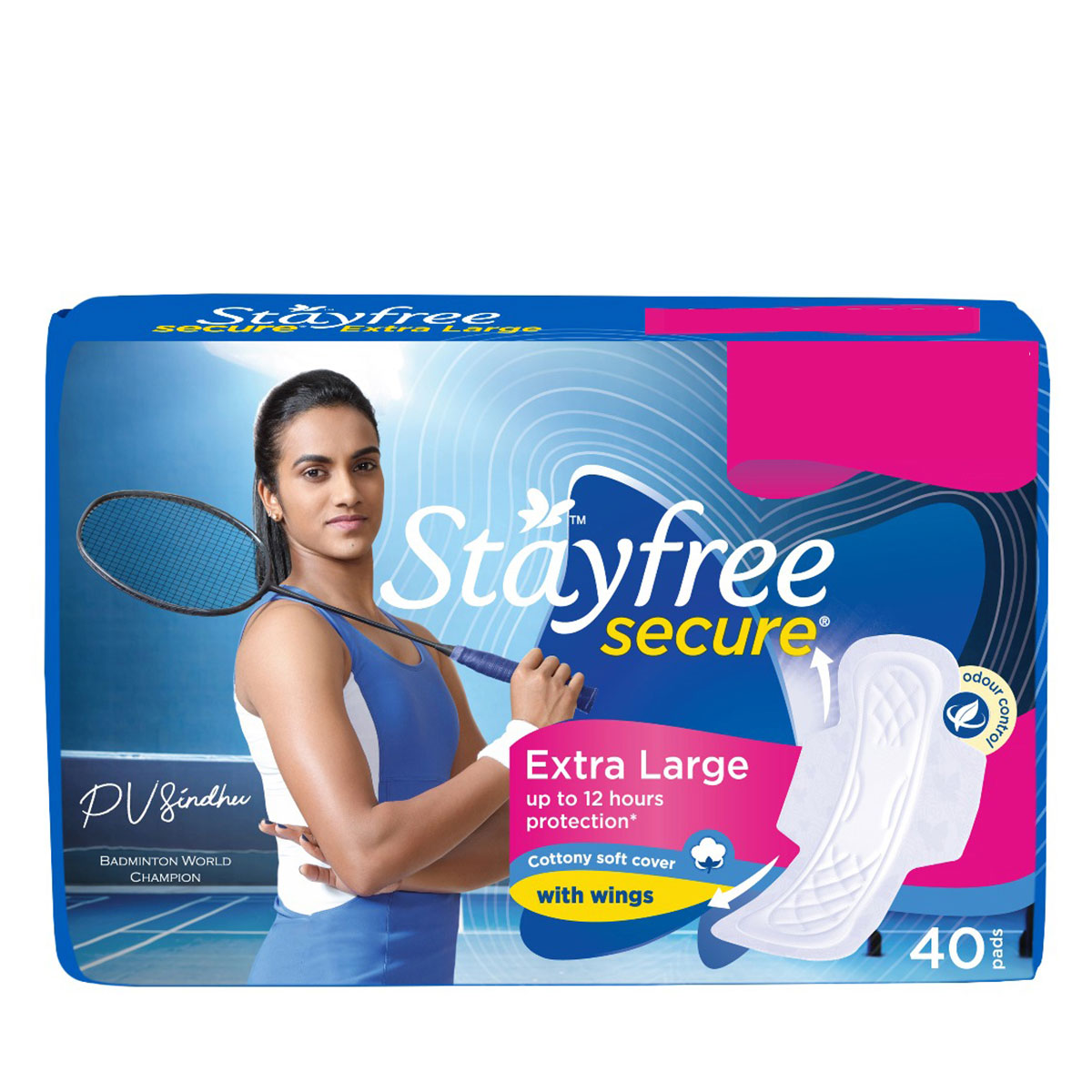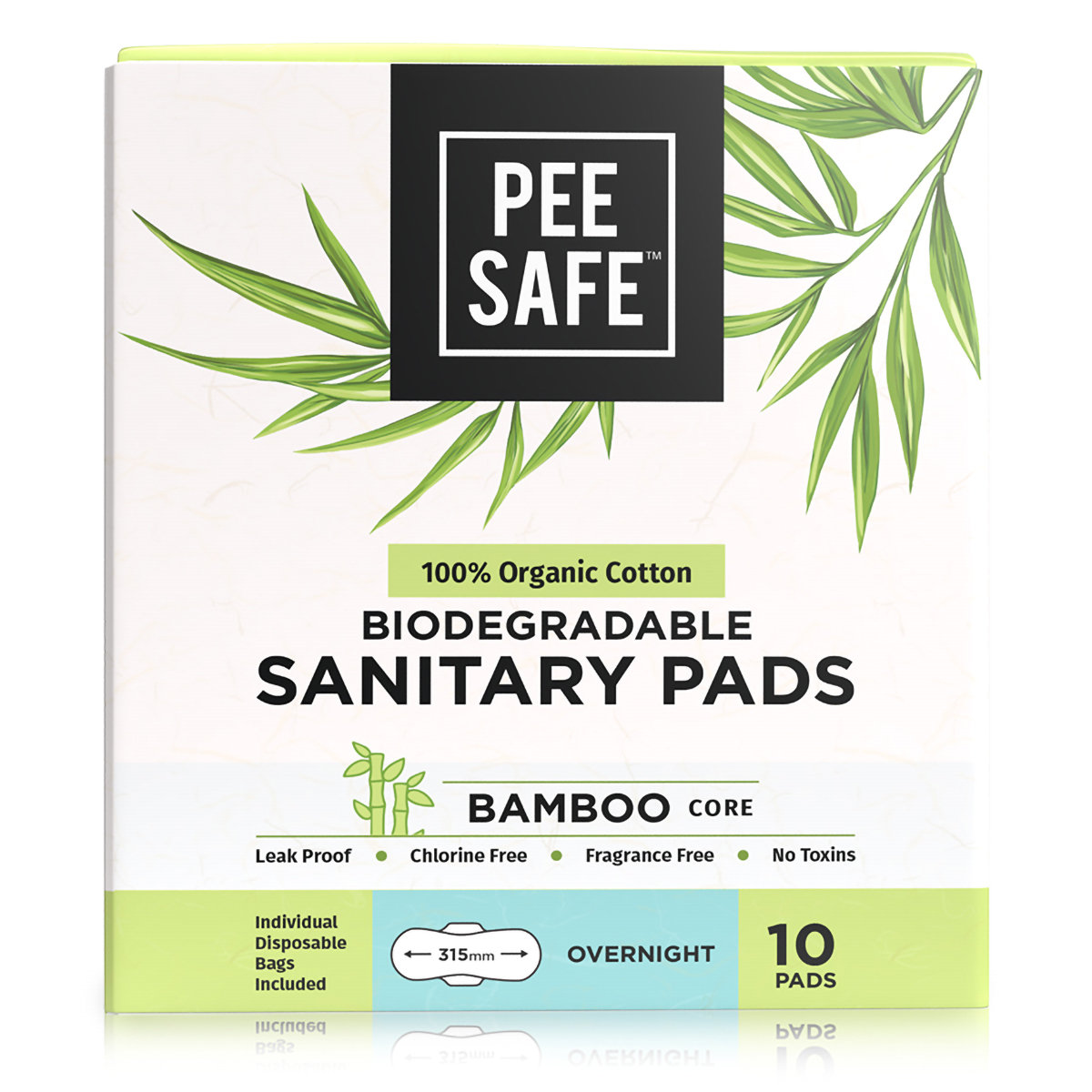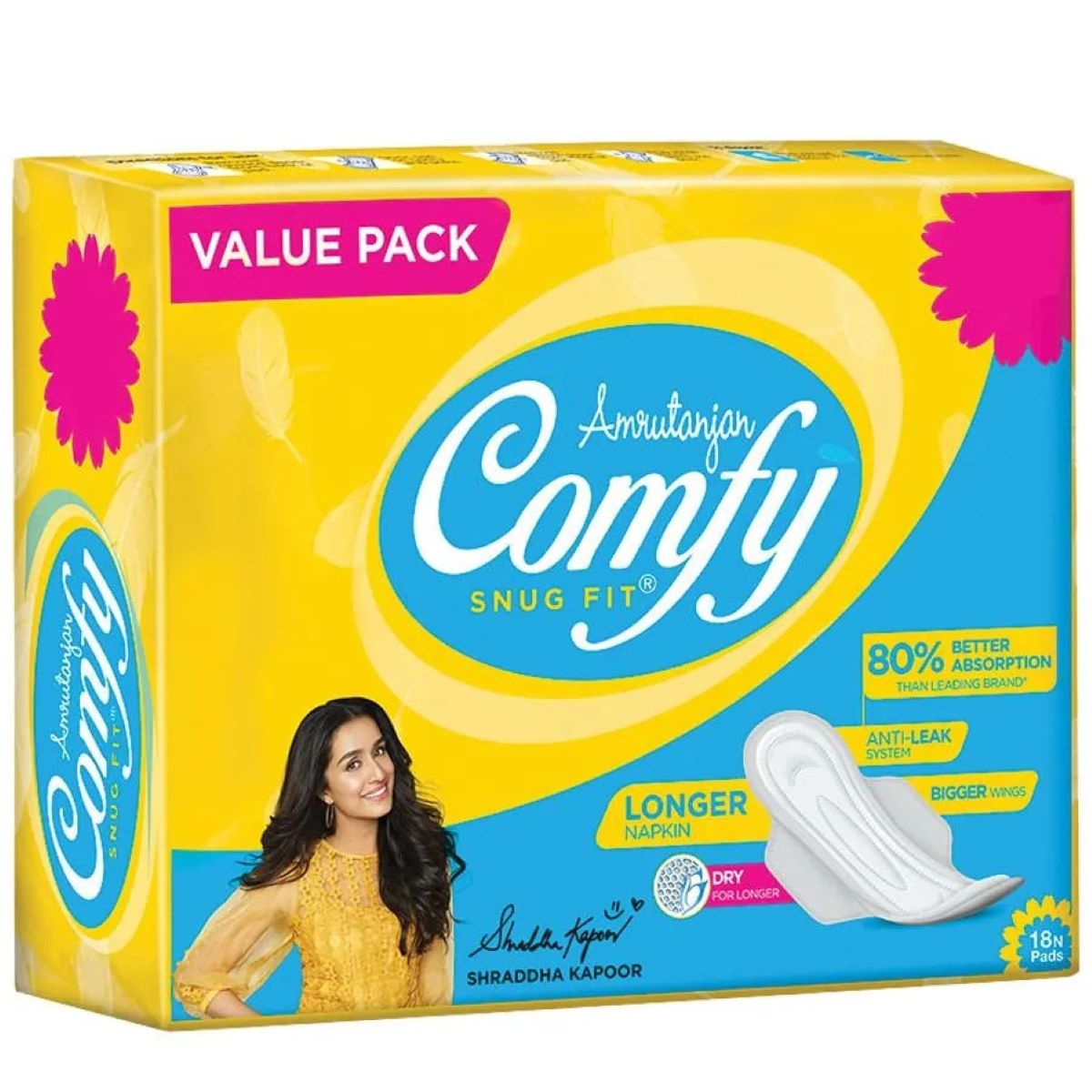- Home
- Women Care
- Feminine Hygiene
Sanitary Pads
Sanitary Pads
- Total Items (198)

Whisper Ultra Upto No Gap No Leaks Sanitary Pads XL+, 48 Count
₹432.30
MRP ₹649
33% off

Sofy Anti Bacteria Sanitary Pads XL, 48 Count
₹376
MRP ₹470
20% off
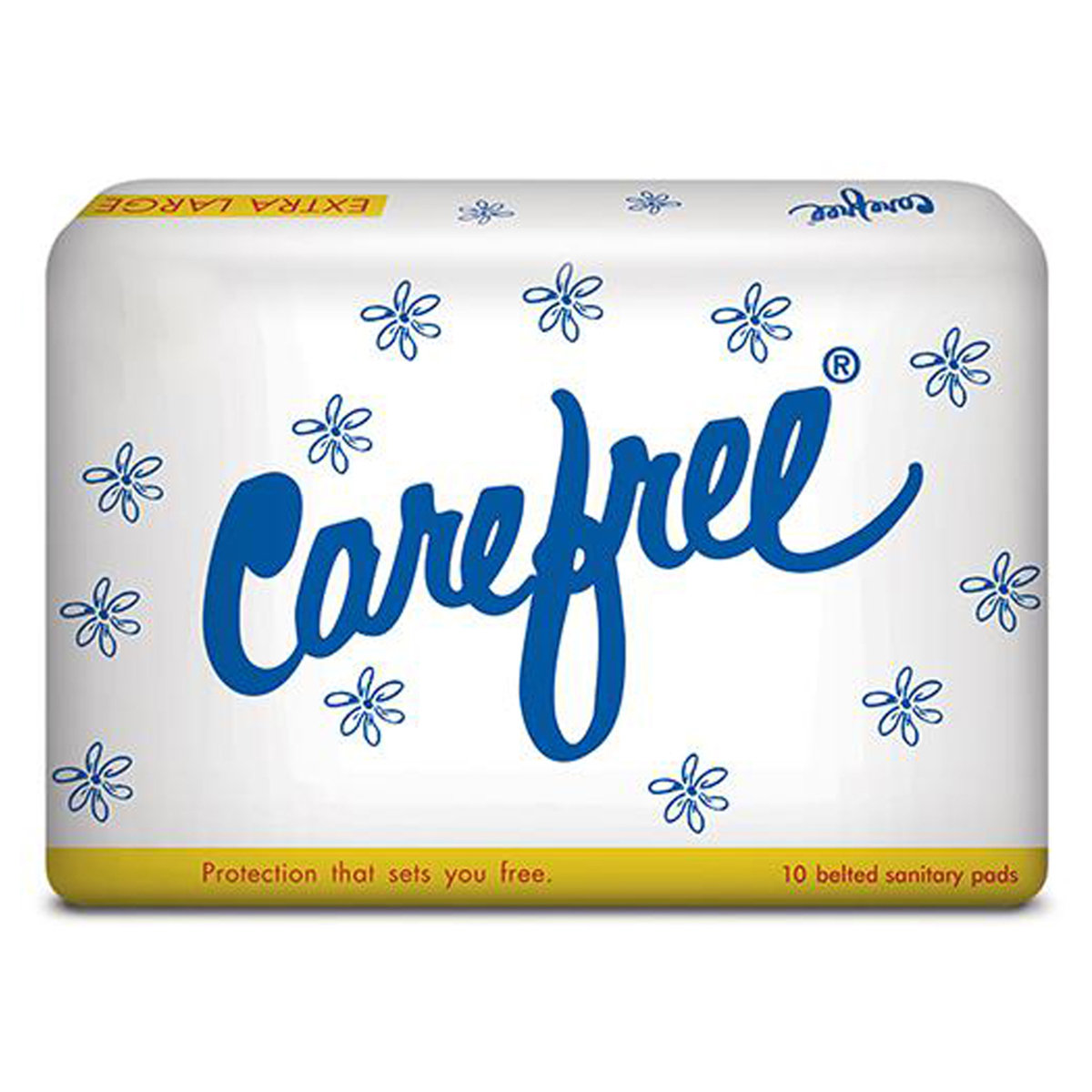
Carefree Sanitary Pads Large, 10 Count
₹142.50
MRP ₹150
5% off

Apollo Pharmacy Ultrathin Sanitary Pads XL+ with Wings, 30 Count
₹256.50
MRP ₹285
10% off

Nua Ultra-Safe Heavy Flow XL+ Sanitary Pads for Women, 30 Count
₹359.20
MRP ₹449
20% off
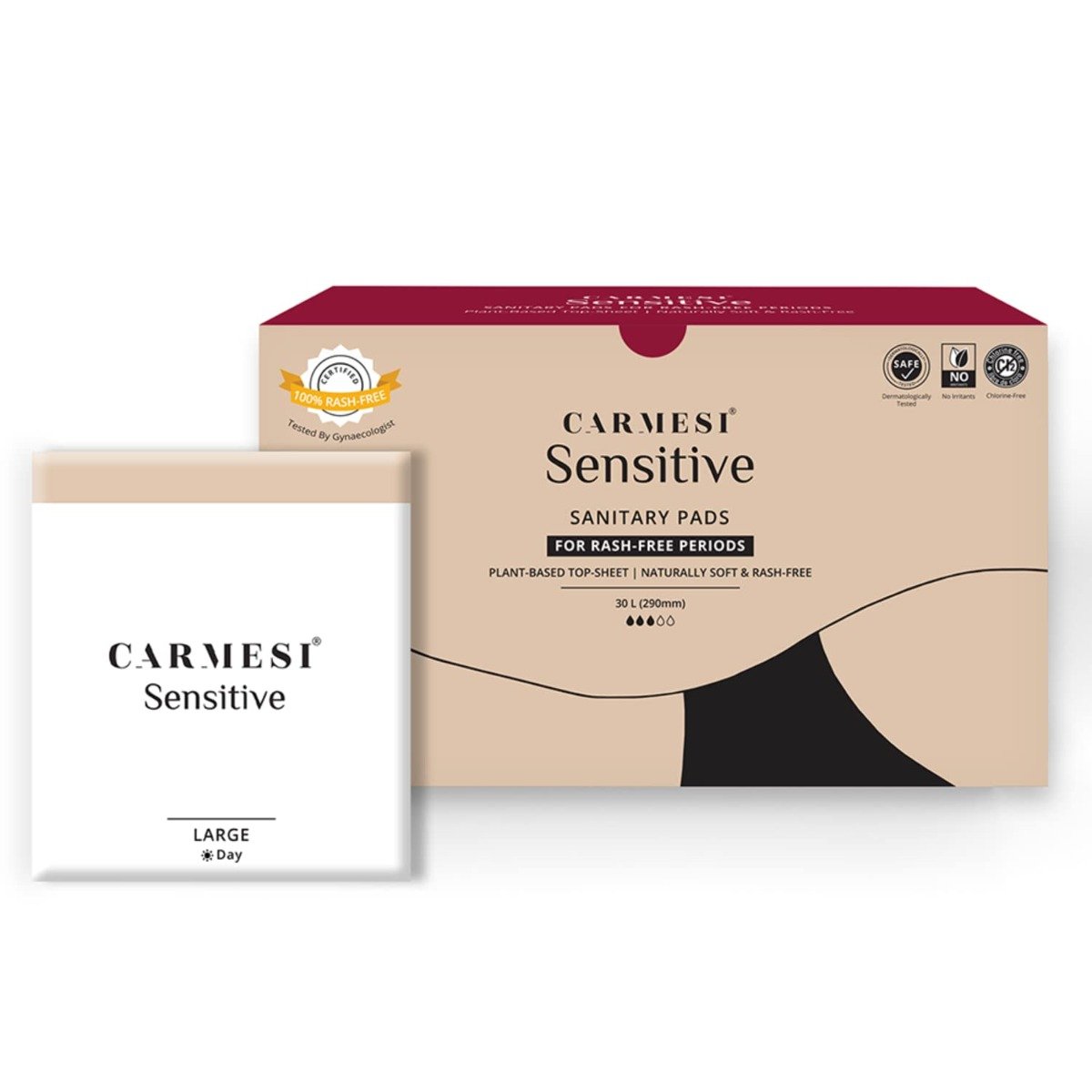
Carmesi Sensitive Sanitary Pads Large, 30 Count
₹405
MRP ₹450
10% off
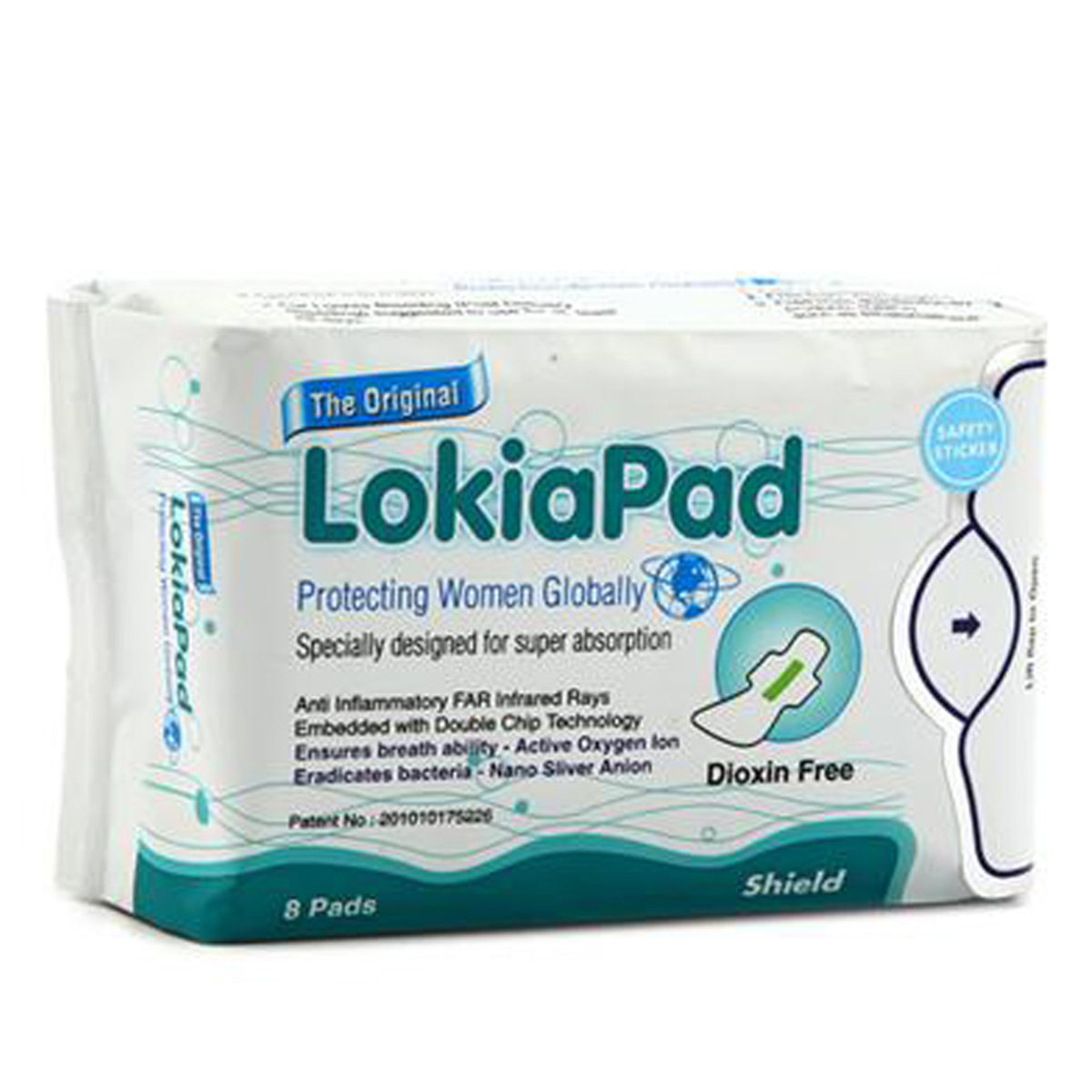
Lokia Sanitary Pads, 8 Count
₹342
MRP ₹380
10% off

Hi Life Organic Period Pads, 10 Count
₹299.70
MRP ₹333
10% off

Apollo Pharmacy Regular Sanitary Pads XL, 20 Count
₹99
MRP ₹110
10% off
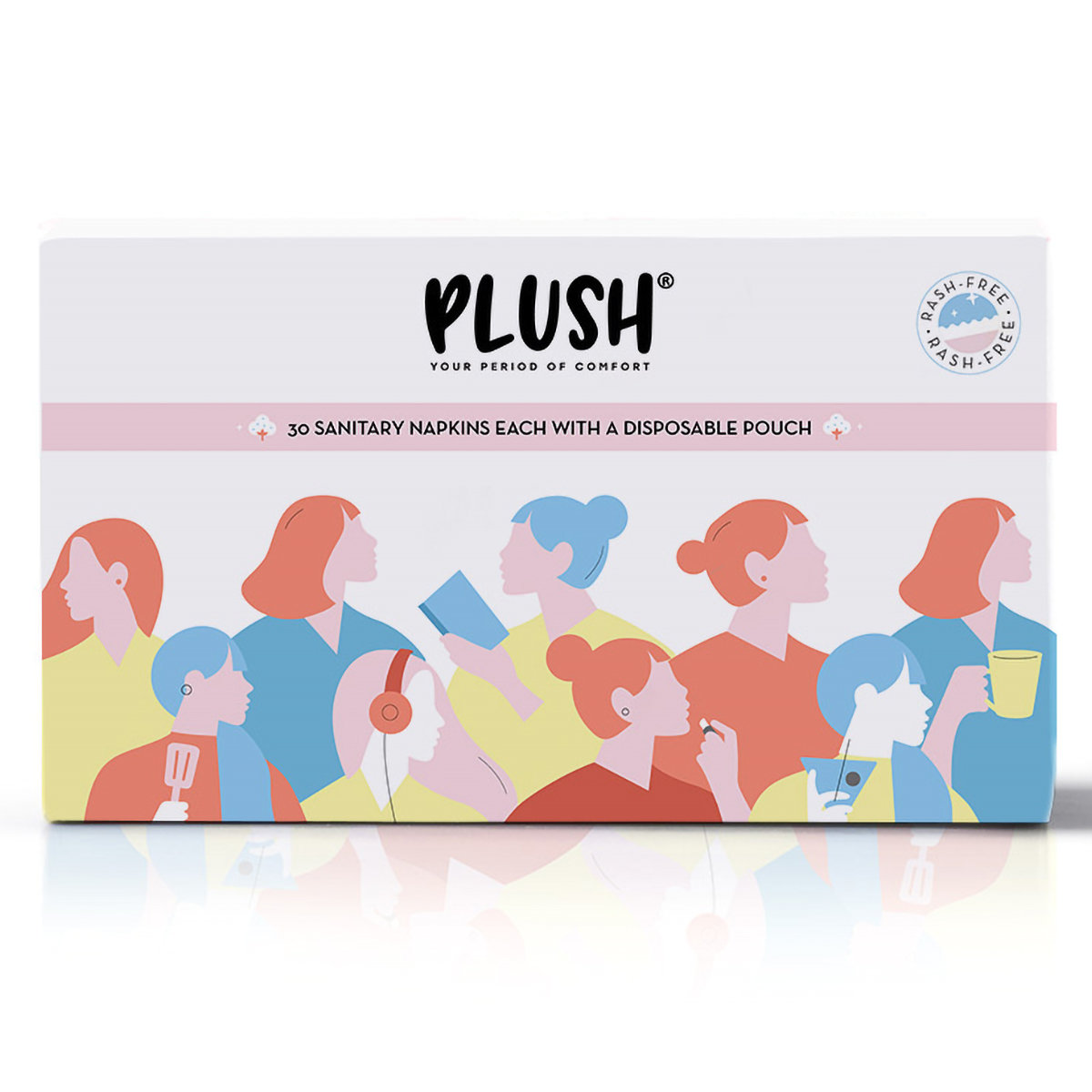
Plush Sanitary Napkins with Disposable Pouchs, 30 Count
₹269.40
MRP ₹449
40% off

Whisper Bindazzz Nights Sanitary Pads XXXL, 10 Count
₹320.30
MRP ₹350
8% off

Whisper Super Absorbent Period Panty Medium-Large, 6 Count
₹224.10
MRP ₹299
25% off

Whisper Bindazzz Nights Sanitary Pads XXL+, 16 Count
₹320.30
MRP ₹350
8% off
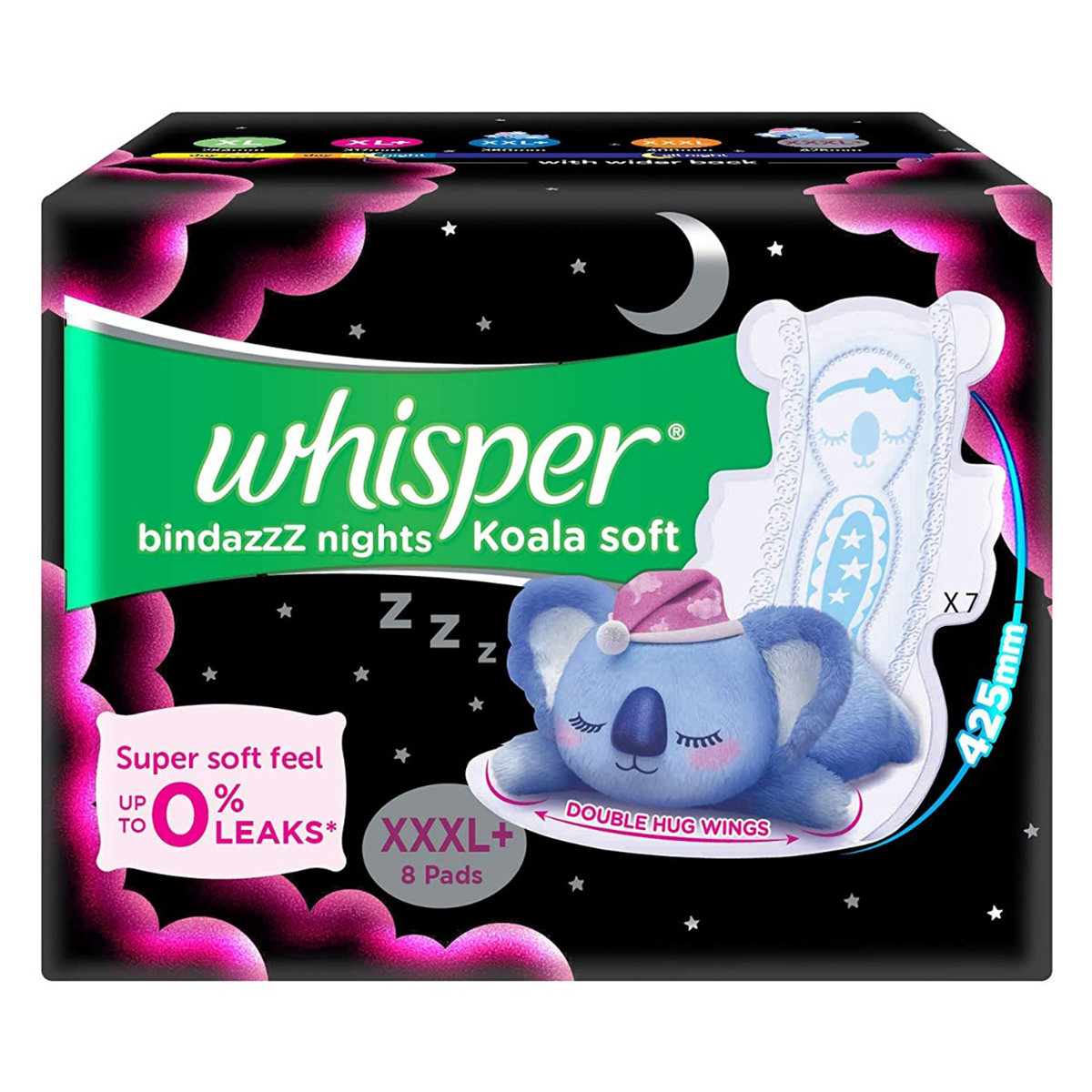
Whisper Bindazzz Nights Koala Soft Sanitary Pads XXXL+, 8 Count
₹313.50
MRP ₹330
5% off
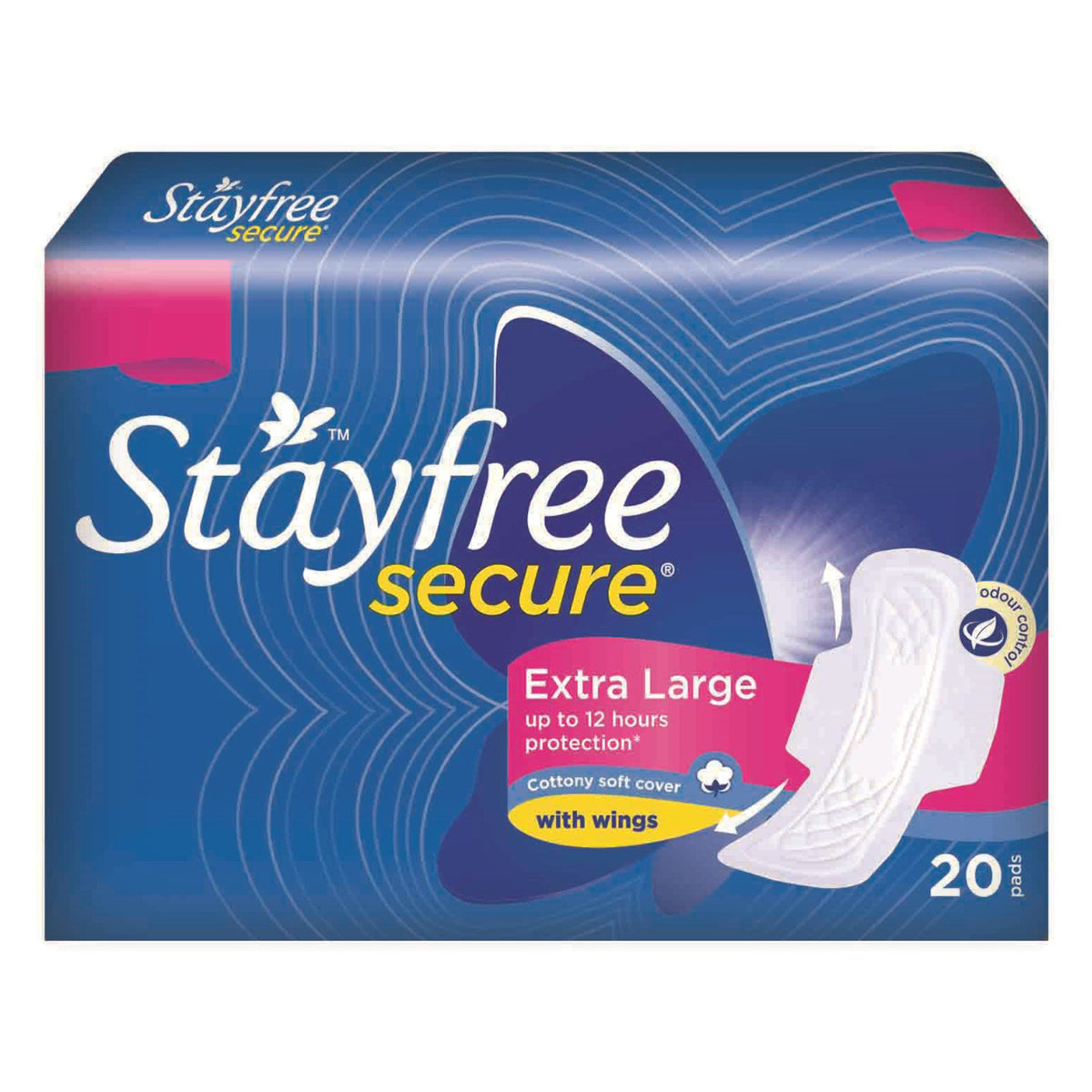
Stayfree Secure Pads with Wings XL, 20 Count
₹116
MRP ₹124
6% off
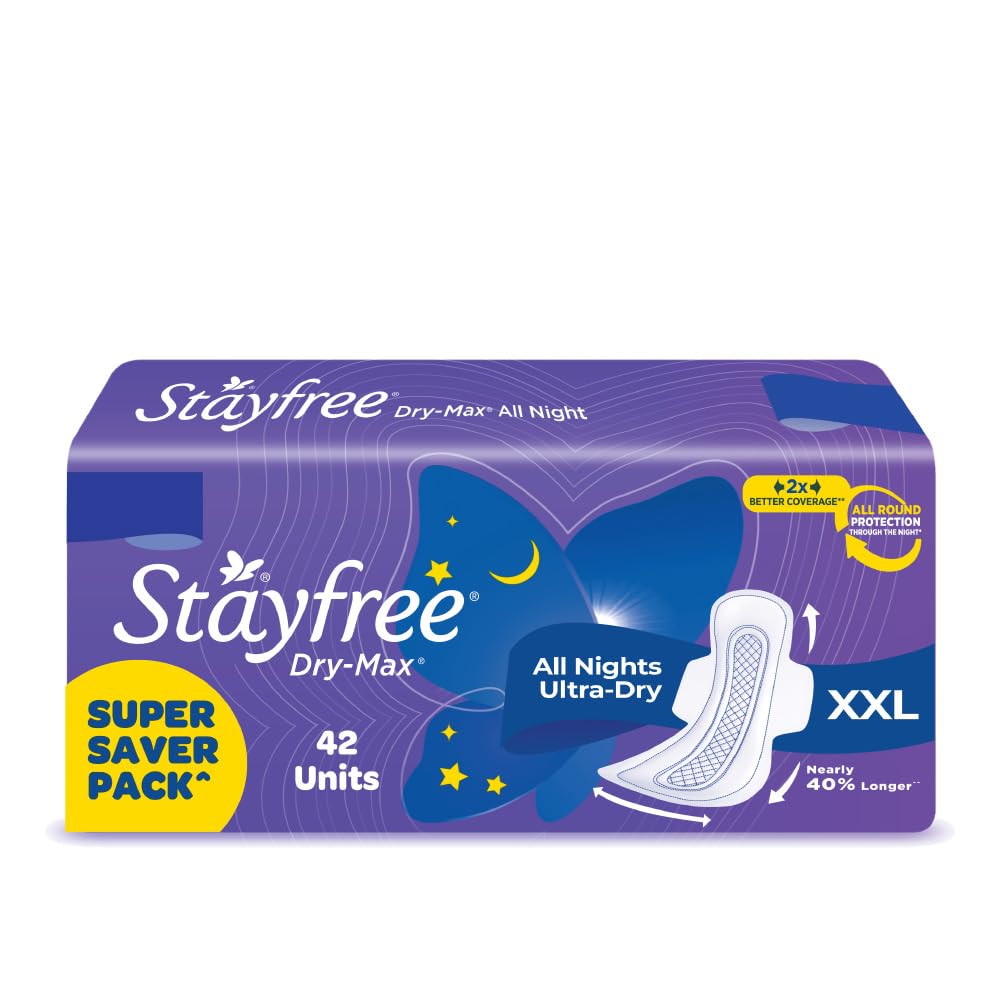
Stayfree Dry-Max All Night Ultra-Dry Pads With Wings XXL, 42 Count
₹554.30
MRP ₹630
12% off
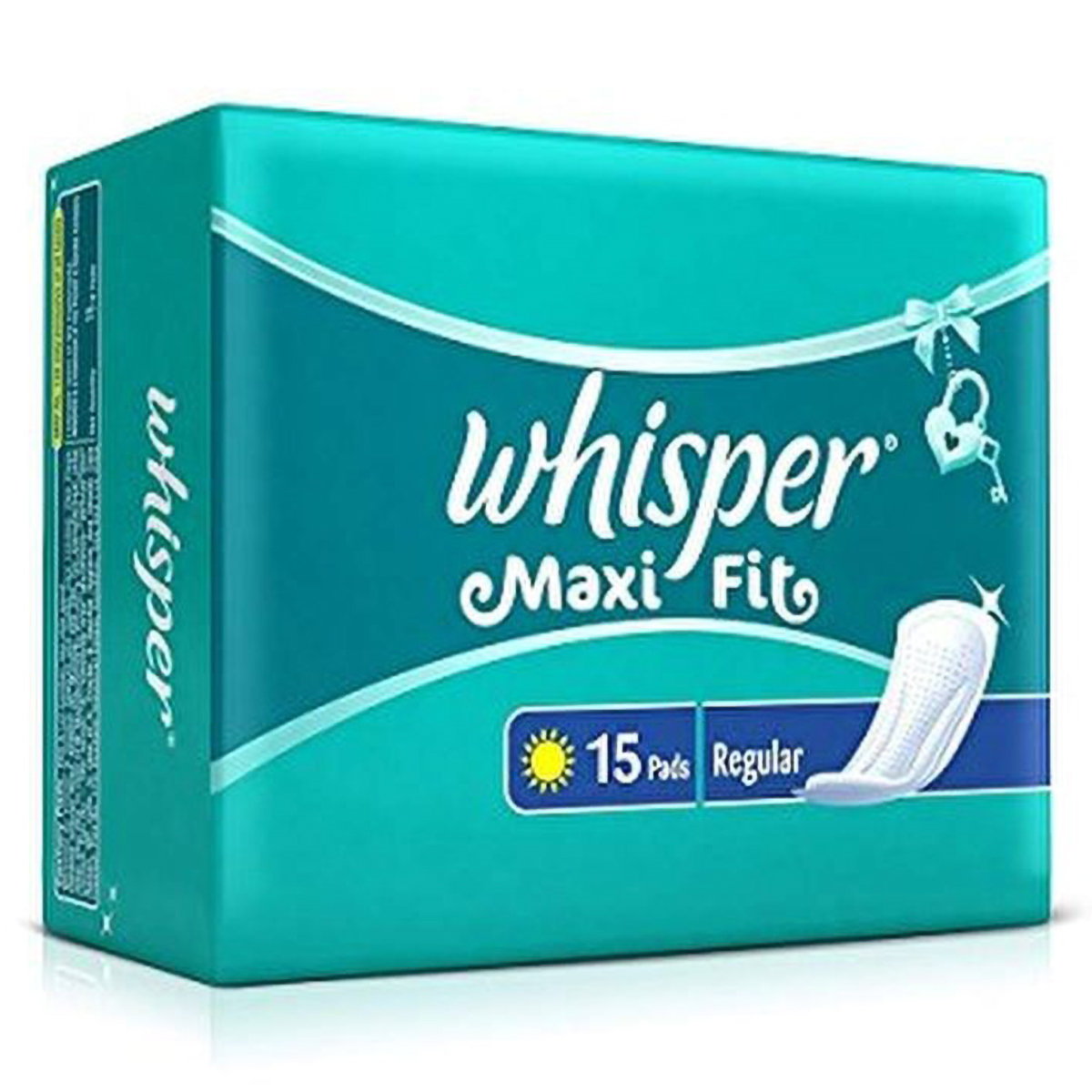
Whisper Maxi Fit Sanitary Pads Regular, 15 Count
₹209.10
MRP ₹220
5% off

Whisper Ultra Upto No Gap No Leaks Sanitary Pads XL+, 15 Count
₹190
MRP ₹200
5% off

Sofy Anti Bacteria Overnight Sanitary Pads XXL, 20 Count
₹247.50
MRP ₹330
25% off
When menstrual blood is discharged, it draws a multitude of microorganisms from our bodies, which proliferate in the warmth of the blood, causing discomfort, rashes, and urinary infections. Using high-quality sanitary pads and replacing them regularly helps avoid the spread of harmful bacteria and diseases. These sanitary pads effectively manage the heavy flow and prevent infections.
Apollo Pharmacy delivers the best products when it comes to menstrual hygiene. We ensure that your well-being is not overlooked by combining a varied range of products into one platform. Products that help women manage their menstrual hygiene, such as rash-free sanitary pads, not only make them feel more comfortable but also boost their confidence.
Types of Sanitary Pads
The following section outlines the different types of sanitary pads so you can make a more informed decision.
- Cotton Sanitary Pads: Organic cotton napkins are composed of natural goods and are devoid of bleaches and chemicals, making them ideal for ladies with latex allergies.
- Cloth Sanitary Pads: These sanitary pads are environmentally friendly. They are made of soft material and can be washed and reused, however, the hygienic standards are dubious.
- Reusable Sanitary Pads: Reusable pads, also referred to as washable menstrual pads, include a slit in the centre where you can insert absorbent liners. They are a green alternative because they don't have to be thrown away and can be repurposed.
- Sanitary Pads for Heavy Flow: A standard pad has a lighter construction and is appropriate for normal flow. It is great for women who like to replace their pads every few hours, regardless of the flow. Sanitary pads for heavy flow, on the other hand, are bigger, with more absorption capacity and lateral wings.
Why Should You Opt for Sanitary Pads?
Here are some benefits of using sanitary pads:
- Easy to Use: Pads are one of the least messy kinds of period protection. Place the sanitary napkin on your underpants, and you are done.
- Less Risk: Leaving your menstrual cups or tampons inside for too long can cause Toxic Shock Syndrome (TSS). Pads, on the other hand, do not have these issues.
- Restful Sleep: You must avoid sleep deprivation, particularly during your period. Since they are meant to soak and seal in heavy night flow, specially developed overnight sanitary pads provide for undisturbed relaxation time.
- Minimum Allergic Reactions: Replacing your pad regularly reduces your chances of having an allergic skin reaction.
- Restricted Leakage: The increased surface area of a sanitary pad assures better coverage and reduces the risk of leakage.
Steps to Use Sanitary Pads with Wings
Below are some easy-to-follow steps:
- Begin with hand-washing.
- Remove the pad from the wrapper and discard the old pad in the wrapper.
- Peel the adhesive sheet and position the pad on the underwear's bottom.
- Remove the backing from your sanitary pad and wrap it around your panty on both sides.
- After you have washed your hands, you are good to go!
- Remember to replace your pads every four hours at the absolute least.
Frequently asked questions
Sanitary napkins are disposable menstrual pads made of absorbent material to absorb menstrual blood. Some pads have extra material on the sides to help hold the sanitary pad in place and prevent leaking.
Material comfort, good absorbency, length of the pad, and flow of your period are some important things to consider while choosing a sanitary pad.
Depending on the flow, a sanitary pad should be changed every 4-6 hours. Wearing it for too long could lead to bacterial growth and infections.
Women often experience allergies, rashes, itchiness and infections because of the high plastic content in sanitary pads. The artificial chemical fragrances may cause a foul odour.
Yes. Sanitary pads do expire, which is usually after five years. Using them outside that date can do enormous damage to health.















